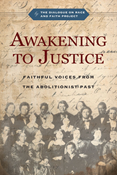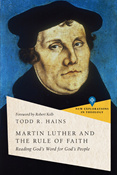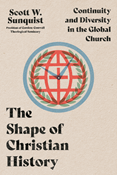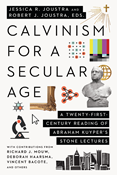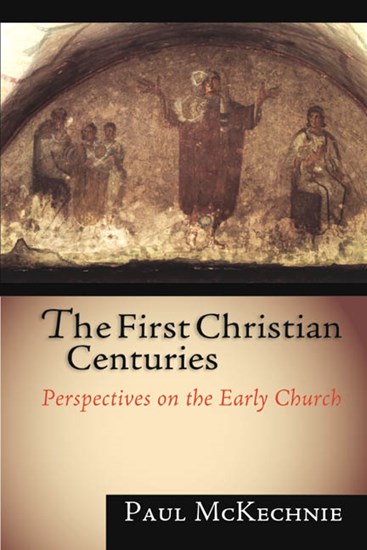
|
The First Christian Centuries
paperback
|
- Length: 270 pages
- Published: February 05, 2002
- Imprint: IVP Academic
- Item Code: 2677
- ISBN: 9780830826773
-
Other Retailers:
Amazon*
*affiliate partner
The first three centuries of the early church were a period of struggle, transition and growth. Recent attempts by historians and social scientists to understand this era have produced various and conflicting accounts. Indeed, some have sought to overturn the former consensus regarding which texts provide reliable evidence and how they should be interpreted.
In The First Christian Centuries, Paul McKechnie, a classical scholar, examines some key issues in the current debate.
- Which ancient sources are reliable?
- What was the social makeup of the early Christian movement?
- What can we determine about the growth rate and persecution of first-century Christians?
- What do we know about the second generation of Christians?
- How should we assess the reliability of our various sources from the second and third centuries?
- What were the nature and extent of persecutions in the second and third centuries?
- What were the long-term consequences of Paul's making converts within the household of Caesar?
- Can we gain historical perspective on the diversity that traveled under the name Christian in the early centuries?
- How were women regarded and what roles did they play?
- And how was it that a Roman emperor, Constantine, was converted--and what were the implications for the Christian movement?
The value of McKechnie's study lies not in providing a comprehensive narrative of the origins and growth of the early church. Rather, it lies in critically examining key historical issues in sustained conversation with contemporary scholarship and the ancient sources. McKechnie will be valued by both students and scholars of early Christianity as an intelligent and informed companion who offers repeated and valuable insights into this critical era of Christian beginnings.
CONTENTS
Preface
Introduction: Christians from a Distant Perspective
Theology and History
Who Was, or Was Not, Christian?
Ways of Understanding Differences between Christians
A Story of Both Centre and Periphery
1. First-Century Christianity: The Source Debate
A Portfolio of Sources
The New Testament
Fragmented Discussion
The Intracanonists' Dispute Resolved
The Extracanonists' Case Delineated
The Extracanonists' Case Disproved
New Testament Insights on the Christian Movement
2. First-Generation Christianity
Jesus' Church: A Sect
Christians, the Synagogues and the Temple
Jerusalem Christianity in the First Decade
Simon Magus and His Sect
The Jerusalem Church, 41--62
Paul and the Antioch Church
The Pauline Churches, 46--62
3. Initial Growth, Incipient Persecution
Persecution and Illegality
A Threshold
4. The Second Christian Generation
Second-Generation Church Order: the Didache
Second-Generation Discipline: Clement of Rome
Second-Generation Prophecy: Hermas
Second-Generation Growth: Alexandria and Egypt
The Second Generation in Jerusalem and the Jewish Churches
Separation between Christianity and Judaism
5. Second- and Third-Century Christianity: Another Source Debate
Memories and Apologia
Apolgetic and Mission
Apocryphal Stories
Gnostic Writing
Eusebius
6. Persecution and Anti-Christian Polemic
Pliny and Trajan
Hadrian: Deterring Informers
Peregrinus: When Politics Dictated Tolerance
Polycarp: The Crowd Demands a Victim
Intellectual Attacks
Where Persuasion Fails: Anti-Christian Violence
The Decian Persecution
7. An Enclave: Caesar's Palace
Government Officials
The Second Generation
An Unusual Arrest
Christians: A Persistent Presence in the Palace
Third-Century Purges
The Shape of Things to Come
8. Gnosticism and Christian Diversity
"False Teachers" in the New Testament
Key Concepts in Gnosticism
Divergent and Convergent Forces
Ignatius of Antioch
Who Was a Gnostic?
Cosmopolitan Theologizing
Sectarianism in the Development of Christianity
The Great Church and Doctrinal Development
A Case Where "No Sock Fell Off": Origen
9. Women and Christianity
Feminist Readings of the Early Church
Stark's The Rise of Christianity: A Bullish View?
Feminists Adapt the New Consensus
Leadership Given by Women
The Pull of Gravity
10. The Great Persecution and Constantine
The Calm before the Storm
The Churches and Roman Society
The Crisis of Empire and Anti-Christian Propaganda
The Great Persecution
Constantine's Rise to Power
Constantine's Conversion
Christianity Becomes the Official Religion
Primary-Source Finding List
Bibliography
Index




